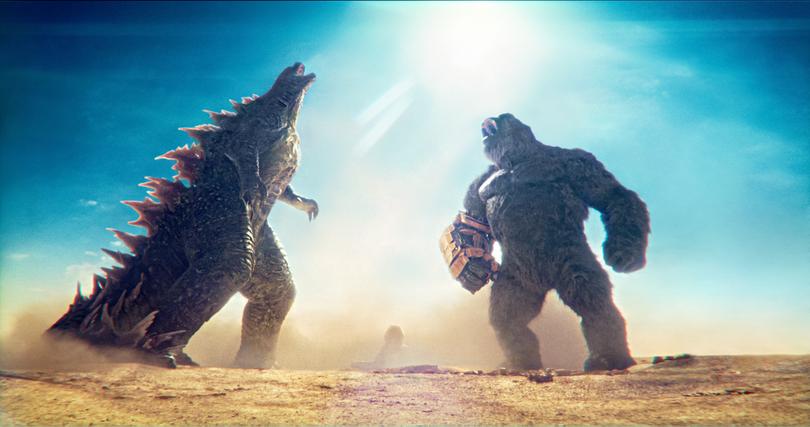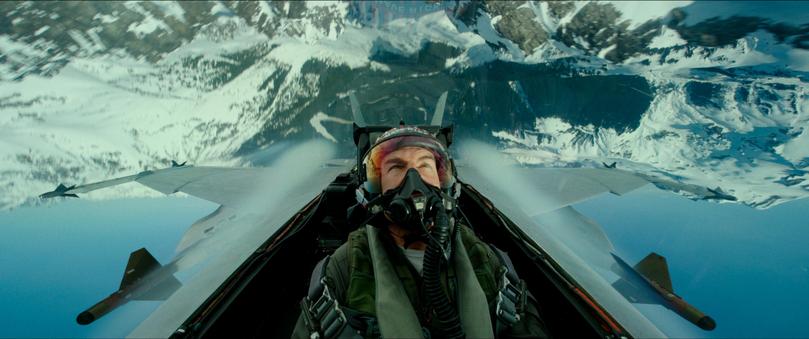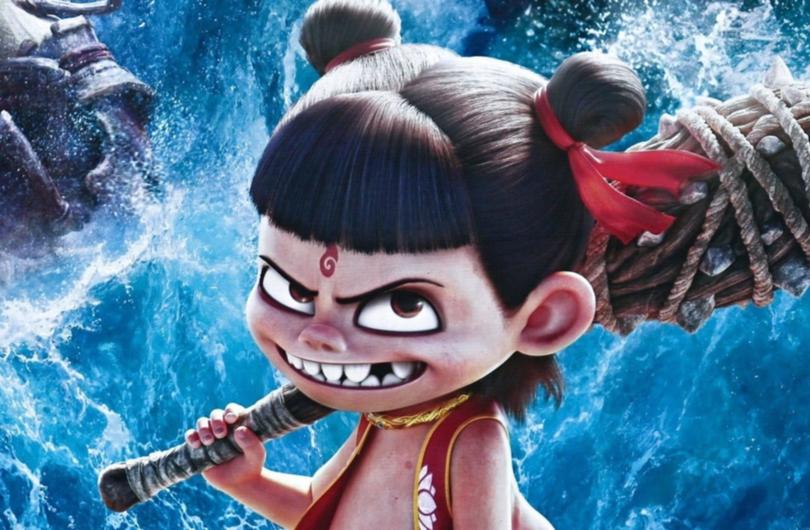US and China trade war: Hollywood movies could be banned in tariff escalation
As the trade war between the US and China escalates, Hollywood films could be banned in the middle kingdom.

China is considering a ban on all American movies as part of the escalating trade war stemming from Donald Trump’s tariffs regime.
According to a Bloomberg report, two popular Chinese bloggers with ties to local authorities, one the grandson of a former provincial party chief, the other a senior editor of the official news agency, posted identical lists of potential retaliatory measures against the US.
The ban of American cinema imports was on those lists.
Sign up to The Nightly's newsletters.
Get the first look at the digital newspaper, curated daily stories and breaking headlines delivered to your inbox.
By continuing you agree to our Terms and Privacy Policy.China is the second largest box office in the world, behind North America, which encompasses the US and Canada, but has in previous years snagged the top position.
In 2024, China’s box office was $US5.8 billion to North America’s $US8.7 billion. Last year’s most commercially successfully US releases in China were Godzilla x Kong: The New Empire, which hauled $US132 million, Alien: Romulus which made $US110 million and Deadpool & Wolverine, which cleared $US59 million.

This past weekend, A Minecraft Movie made $US14.5 million in China on its opening weekend, which represented 10 per cent of its international takings, and 4.7 per cent of its overall box office of $US309 million.
The country has strict censorship laws, particularly against political content as well as other elements such as LGBTQI storylines and characters. China has a cap of 34 foreign film releases each year.
In the past, the rising middle class in China and its 1.4 billion consumers proved a lucrative market for Hollywood studios and producers, which found massive success in the middle kingdom.
Films such as the Fast & Furious franchise, Avatar movies and Marvel have enjoyed robust returns from Chinese releases. Avengers: Endgame grossed $US629 million in China while Fate of the Furious nabbed $US392 million.
Hollywood had even gone so far as to censor its edits to pass Chinese censors, and partner with Chinese financiers to ensure a release inside those borders.
One prominent example was Top Gun: Maverick. When the first trailer was released in 2019, it had replaced the Taiwanese and Japanese flags, a sensitive topic in China, on the back of the jacket worn by Tom Cruise’s character to images of random symbols.

By the time the film was released in 2022, delayed due to Covid closures, Maverick’s Chinese financier, Tencent, had backed out, reportedly due to heightened political sensitivities in being involved in a movie that boosted the power of the American military. The original patches with the flags on Maverick’s jacket was restored.
Not everyone played ball. Quentin Tarantino famously refused to edit or censor anything in Once Upon a Time in Hollywood for a Chinese release.
After its 2010s heyday, American studios’ welcome in China has become cooler this decade, driven by politics.
Strained relations between China and the west, as well as wide disruptions in the entertainment industry during the Covid years stopped the momentum Hollywood had been building in China.
A large part of that is China’s own moviemaking machine has vastly improved in recent years. Like its innovations and improvements across many industries, Chinese studios and filmmakers worked closely with Americans and learnt and cribbed their formulas for success, particularly when it comes to high-spectacle blockbusters.

Egged on by political leaders hoping to encourage nationalism and pride in its own cultural creations, domestic moviegoers have enthusiastically turned out for those homegrown films.
Many of them also have more than a tinge of patriotic fervour, such as the 2021 war epic, The Battle at Lake Changjin, which was the highest grossing film in China until this year.
It was knocked out of that position by Ne Zha 2, the animated action-adventure barnstormer that is currently sitting at $US2.11 billion and holds the global record of the highest grossing animated film of all time. Ne Zha 2 draws on Chinese myths and legends.
There is also the Wolf Warrior movies, which features a Jason Bourne-esque character who takes on an American mercenary.

Of the top 20 highest grossing movies in China, Avengers: Endgame is the only foreign import. The oldest of the 19 other films is The Mermaid from 2016, which emphasises the recency of China’s successful output.
China opened its then fledgling cinema market to American films in 1994 with the Harrison Ford drama The Fugitive. By 2012, seven of its 10 most popular releases were American. Last year there was one only.
The Trump Administration announced it would impose a 54 per cent tariff on Chinese imports (a 34 percentage point increase on top of the existing 20 per cent in place), which led China to retaliate by promising it would match them.
The US government has now said it would increase its tariffs to 104 per cent against China if it didn’t back off, fuelling a trade war between the world’s two largest economies.

